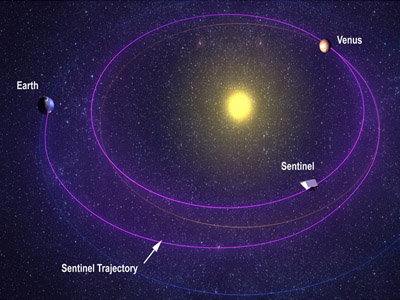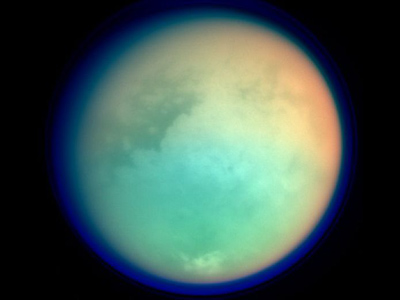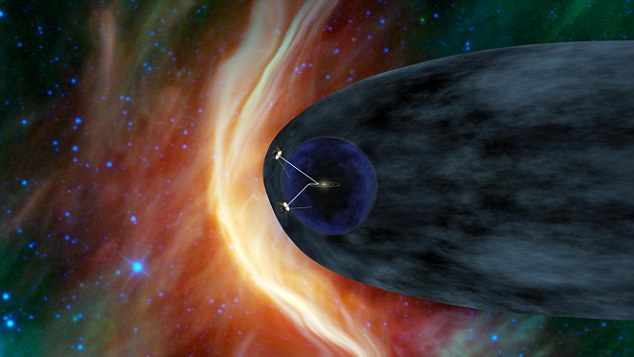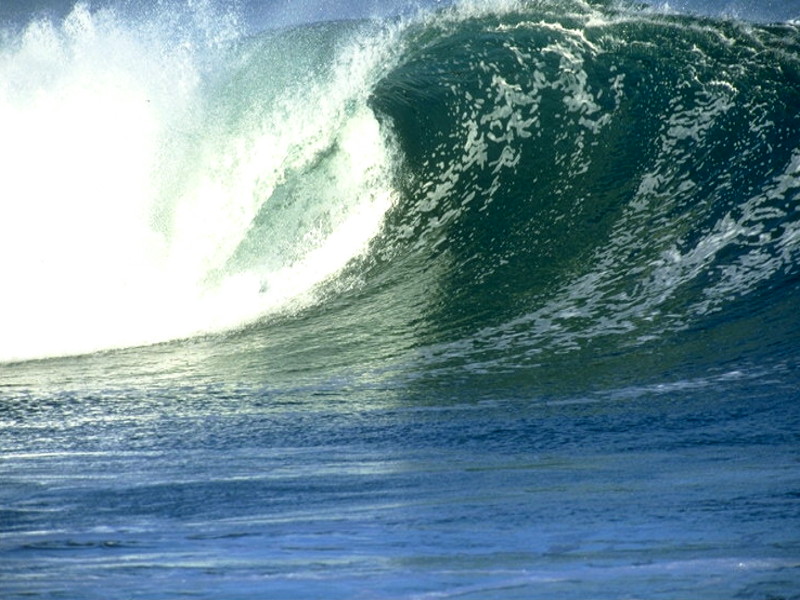Home » Posts tagged with "Solar System"
New telescope to guard Earth from killer asteroids
Some 500,000 asteroids are circulating near-Earth space and some of them may pose a real danger to our planet. But a US company says it plans to build a telescope that will be able to watch them.
Some asteroids may collide with Earth between 2020 and 2030, and only about 10,000 out of half a million have been catalogued to date – so time is of the essence. But the B612 Foundation is certain its...
Saturn’s moon has watery ocean under thick ice crust
Cassini’s View of Titan
Titan, one of the most interesting objects in our Solar system, may have an ocean of water beneath its thick ice crust layer. Scientists say large deposits of water drastically increase the possibility of life on the moon.
Saturn’s largest moon Titan is one of the few objects in our system that can boast a true atmosphere. The moon also has developed a climate, with...
ESO Council supports world’s biggest optical telescope
The European Extremely Large Telescope (ELT) will use a mirror 39 meters in diameter to image planets outside the solar system.
Most members of the European Southern Observatory’s Council have supported the 1.1 billion-euro project to build the world’s largest optical telescope.
Austria, the Czech Republic, Germany, the Netherlands, Sweden and Switzerland voted to start the program while...
Cassini to make closest pass over Enceladus South Pole
Image taken by Cassini spacecraft shows at least four distinct plumes of water ice which spew out from the south polar region of Saturn's moon Enceladus.
NASA’s Cassini probe is set to make its lowest pass yet over the south polar region of Saturn’s moon Enceladus in order to “taste” the icy particles spraying out from its surface.
The close approach will be at an altitude of 74km...
Voyager probe Reaches Outer Limits of the Solar System
More than three decades after launching, NASA’s workhorse spacecraft is inching closer to leaving the solar system behind.
Currently 11 billion miles away from the sun, Voyager 1 has been exploring the fringes of the solar system since 2004.
On Monday, the spacecraft entered a new region, known as the ‘stagnation zone’ – an area close to the very edge of our solar system, affording...
Fifth Giant Planet was Ejected from the Solar System
Jumpin' Jupiter: The solar system's largest planet may well have knocked another giant into deep space
The consensus among astronomers is that the solar system has always had four giant planets – Jupiter, Saturn, Neptune and Uranus. But now it’s claimed that it’s much more likely to have been home to a mystery fifth giant planet that got knocked out.
Computer simulations by David Nesvorny...
Earth water came from space
The Herschel Observatory discovered in an interesting area close to a star; a finding that may help explain the origin of water on Earth.
The origin of the planet’s water has been the subject of long debate among scientists. Currently, it is believed that it came to Earth via impacts with comets and asteroids during the formation of the Solar System.
An article published on Thursday (20th) in...
NASA's Jupiter probe blasts off
NASA’s Juno robotic probe has started its journey to the heart of Jupiter to gather detailed information about how our solar system is formed.
The Atlas 5 rocket carrying the spacecraft blasted off from Cape Canaveral Air Force Station at 12:25 p.m. (1625 GMT) Friday with an almost one hour delay, Reuters reported.
“Next stop is Jupiter,” head of the Juno science team Scott Bolton...
Russian Warning Issued Over “Controlled” Comet Headed Towards Earth
A chilling report prepared for President Medvedev by Minister Serdyukov of the Russian Defense Ministry on the building of an additional 5,000 underground ‘bomb’ shelters in Moscow warns that even though progress is being made, the appearance of the new Comet Elenin [photo right] in our Solar System means “additional resources” will have to be added “immediately” as the 2012 timeline for...
Second sun may appear at any moment
Second sun may appear at any moment.
Scientists claim that Betelgeuse, a star 640 light years away from Earth, is going to explode soon. Nikolai Chugai, head of the department of Variable Stars and Astronomical Spectroscopy of the Russian Academy of Sciences’ Institute of Astronomy shares his views with RIA Novosti’s Samir Shakhbaz, on possible threats and impact this star may cause to our planet.
Samir...




















